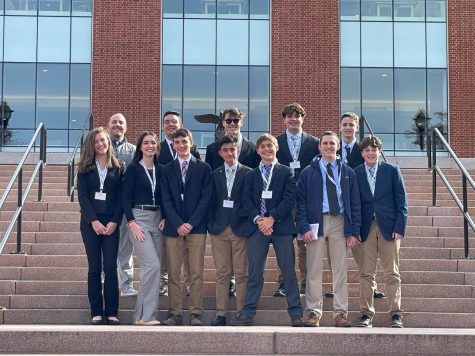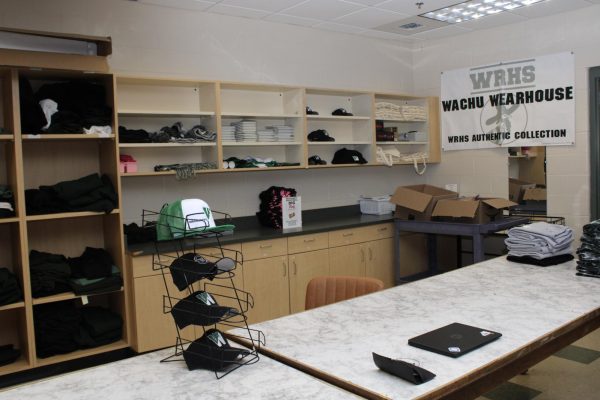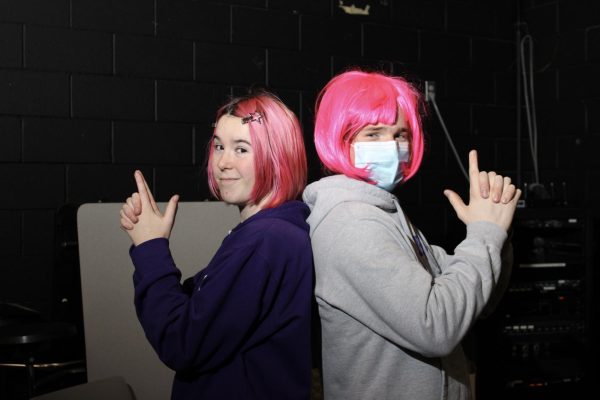DECA Membership Rebounds Post-Covid
DECA provides aspiring business students an opportunity not only to compete, but also to improve their presentation, analytical, and network skills – all while having the ability to pick a topic that best suits them.
“I have learned how to form professional relationships and my communication skills have improved,” said John Baczek, who joined DECA this past year. “I can now think with a more business-oriented approach to help solve real-world problems.”
Club membership has increased by 357% this year.
“Last year there were 14 kids in DECA,” said Business teacher and adviser, Ryan Cody. “Currently we have 64 members.”
Prior to this year, Cody taught Business classes and advised DECA at Nipmuc High School for ten years.
“My main goal is to restore the program to what it once was. After COVID-19, the program struggled. I want to bring in as many students as possible,” said Cody.
Baczek, influenced by Cody, decided to join DECA.
“In my Marketing II class, Mr. Cody explained DECA. His passion for it made me want to join,” said Baczek.
Freshman Billy Mead said he joined because DECA seemed interesting and unlike other clubs that the school offers.
“This club is unique. You compete in various role-play competitions. You are given a real-life situation happening in the category of your choice. With the problem you are given, you must offer a solution as a business professional,” said Mead.
Junior Charlie Gorske also joined DECA this year.

“I joined because my friend Thomas Fenlon needed a partner for his project. I am very happy I joined because we went to districts and then qualified for states,” said Gorske.
This year 23 of 45 DECA members advanced to districts. Typically twenty percent of students in a school advance to districts. There, judges score students’ presentations. The top seven participants in each business category advance to states.
“I felt honored qualifying for States. I did not expect to see that many kids at Districts,” said Gorske. “We worked very hard on our presentation and had great practice sessions. That is why we were so successful.”
This year DECA students began to run the school store again, as last year NHS students volunteered to help out.
“The school store is open every day. I see an influx of people browsing and buying,” said school resource officer Dan Contois.
Wachusett Warehouse has tried new techniques to increase sales.
“The kids modeled the clothes and stream them on the cafeteria TV. They started an Instagram page for the store, and they sent an email for feedback,” said Contois.
Contois said that DECA running the school store makes sense because students can learn new business tactics that cannot be taught in the classroom.
“If you put a school store in the hands of business-oriented students they get real-world experiences. They can see how well they do and make required adjustments,” said Contois.
Sophomore Matt Bruce also emphasized the importance of real-world situations.
“When you are given a real-world situation,” said Bruce, “you learn to think under pressure, lead, and cooperate,”
Bruce applied to run for the state officer position in DECA. Students on the board help improve and bring more ideas to the club. He must speak to 6,000 people about why he deserves the position.
“I am much more confident than I was a year ago today,” said Bruce. “I would have never thought I could publicly speak in front of that many people.”
Zach is a junior staff reporter for the Echo. Zach likes to go on hikes, debate current events with his brother, and binge Netflix.








